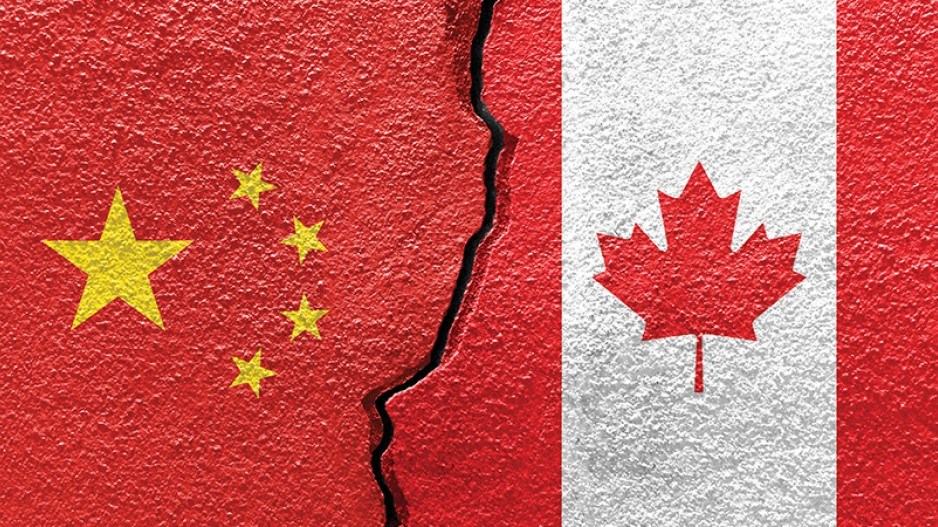The decision by BCE Inc. (TSX:BCE) and Telus Corp. (TSX:T) to use Nokia and Ericsson equipment to build out Canada’s 5G network – effectively shutting out Chinese telecom giant Huawei Technologies Co. Ltd. – is likely to incur Beijing’s wrath in the form of fresh trade sanctions.
That’s the analysis of one industry observer who noted similar cases of the Chinese government squeezing pressure points of countries that have rejected Huawei as a 5G partner or expressed concerns about the tech giant’s relationship with Beijing.
“For example, with Germany, [Beijing] has threatened their auto industry in China,” said Margaret McCuaig-Johnston, senior fellow at University of Ottawa’s Institute of Science, Society and Policy and an official with multiple decades’ experience in dealing with Canada-China relations on technology matters.
“As well, Germany would like to see a free-trade agreement with China, and that would probably be out the window, so they haven’t made a decision on 5G.… In Canada’s case, we don’t know what threats were made behind closed doors, and that really concerns me.”
B.C. exports to the combined market of mainland China and Hong Kong reached just short of $7 billion in 2018 before retreating to $6.6 billion last year.
Currently, the market holds a 15.3% share of B.C. exports – second to only the United States (50.6%). And despite recent focus on B.C.’s increasing seafood and agricultural exports to a growing Chinese consumer base, each category accounted for only $4.5 million and $ 2.4 million, respectively, in 2019.
The biggest potential targets that would do the most damage to B.C. would be pulp ($2.1 billion, 32% of provincial exports to China), copper ($1 billion, 16%), lumber ($758 million, 12%), coal ($756 million, 12%) and machinery (primarily vehicles and parts, $461 million, 7%).
Another area that China could target would be exports of personal protective equipment (PPE) to Canada, where the Chinese market remains the world’s largest manufacturer. Trade consultants in Canada have also noted that, despite a rapid ramping-up of domestic PPE manufacturing capabilities, certain raw materials needed in things like N95 respirator masks are unavailable except from markets like China because the capacity to make such materials moved offshore decades ago.
Even before the announcements by Telus and BCE Inc. (formerly Bell Canada) on their 5G decisions, B.C. and Canadian companies with ties to the Chinese market have reported extraordinary hardship since Huawei CFO Meng Wanzhou’s arrest in Vancouver in late 2018 on a United States extradition request.
Amy Huang, president of Richmond-based North American Investment Association, has led several small-business trade missions to Hong Kong and mainland China, and last summer signed a deal with the southern Chinese city of Dongguan to establish a “marketing centre” for showcasing B.C. goods like food products, ice wine and health supplements.
Huang said the centre, which opened late last year, has not been able to close any deals since opening, and only a portion of the products meant to be showcased in Dongguan got to the city.
“The current Canada-China relationship has fallen to a nadir, and it’s seriously hurting business,” Huang said.
A Canada China Business Council (CCBC) survey in May found 79% of responding businesses said their operations have been affected by Ottawa-Beijing tensions in the last year, but when the survey was released, CCBC executive director Sarah Kutulakos said there were still sectors, such as health-care services, with profit opportunities.
“So where we came out on the survey is, if you have what China wants, your business is proceeding.”
The CCBC declined to comment on the potential impact of Canadian telecoms’ decisions not to do business with Huawei.
Other sectors that shouldn’t be too worried about potential retaliation include tourism and international education, said McCuaig-Johnston, because they have already been hurt by global travel bans instituted to stop the spread of COVID-19.
So while Canadians schools and tourism firms will suffer this year, the damage is being inflicted regardless of what Beijing does.
McCuaig-Johnston also noted that, despite Huawei investing as much as $56 million in the last decade in Canadian tech research, the sector shouldn’t worry about a pullout because the Chinese telecom has disproportionately benefited from matched funding from Canada while retaining much of the intellectual property developed from these initiatives.




